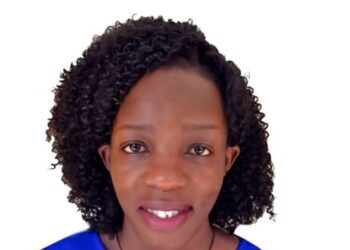While it seems clear that social media has had a profound effect on both the modes and outcomes of political campaigns, one of the challenges in determining the effect of social media is the porous boundaries of the Internet and other social media sites.
The internet has created channels of communication that play a key role in circulating news, and social media being part of it, has the power to change not just the message, but the dynamics of political corruption, values, and the dynamics of conflict in politics.
Like it or not, social media and politics are inseparable because so much political discourse happens on platforms like Facebook and tweetter.
The now idea of “new media populism” isbencompassing how citizens can include disenfranchised citizens, and allow the public to have an engaged and active role in political discourse.
Currently, over half of the Uganda population consumes political news via social media.
With social media serving as the modern-day public forum, all of the debates, fundraising, fact-checking, news and results are just a tap away for voters.
At ONC, the Internet has led to fundamental changes in the underlying processes driving participation and organization. We now see a new digital repertoire of e-tactics, organization that occurs without physical co-presence.
Social media sites such as tweetter have created a populist identity and a sense of solidarity, which has allowed “Bazzukulu Ba Museveni” to develop a common sense of indignation, anger, and frustration as well as a perception of shared victimhood.
The use of social media has made it impossible to separate communication from political organization because people mobilize in both virtual and physical space.
Social media has changed the traditional mobilization structures, including how members of movements are recruited, how communication takes place, how members interact, and what type of campaign activities members engage in.
Social media has increased the speed and interactivity of state communications and transformed the landscape of the Ugandan political campaigns.
ONC’s virtual campaigns have influenced institutional politics by creating symbolic change, highlighting economic disparities, identifying targets of blame, and keeping the issues in the news and in the broader political conversation.
In the sameway, social media at ONC is serving as a tactical tool, a means to disseminate information, coordinate action, and publicize the cause as well as an emotional conduit-a place to develop identity, share emotions, and symbolically construct a sense of togetherness among ONC duty activists.
The Office of the NRM National Chairman has got a leader-driven campaigning orchestrated by a core team of employed communication workers. But at the local level it has got this member led, movement based structure where social media is used to underpin the decision making process.
This kind of hybridity is something we’ve not seen many political organisations do. I saw in interviews that the local level engagement allows them to be comfortable with what happens at the national level.
Right now, ONC uses social media effectively to operate in two different, but fundamentally aligned, ways. ONC coordinators have got a voice and they’re unlikely to stop using it, no matter who asks.
Allied to, but not part of a political party, ONC occupies an interesting space, without the reputational pressures of a party. This frees it to embrace humour and irony in an authentic way.
A key tactic is to share clips where ONC being criticised by mainstream political figures, as a provocative way of demonstrating its own importance and effectiveness in the eyes of members and supporters.
Sociologists and political scientists in those regards above, have always come to recognize the complexity of political action. They have rejected the false dichotomy of institutional politics and non-institutional politics and have recognized that political actions and social movements are an integral part of institutional politics.
What I articulate through my work is that we need to see, in everyday situations, how social media impact the way we learn about news, the way we talk about news, and the way in which we participate in political life.
Social media is also blurring the lines of what’s considered a “trustworthy” new source. Pew data says that adults under 30 trust news from social media about as much as traditional outlets.
I get a lot out of amplifying voices of people whose perspectives you wouldn’t otherwise hear. My next project looks in areas of low social mobility, with issues of deprivation, where young people are the least likely to go to university, to find out how social media shapes their politics.
For God and My Country Uganda!
lukangasamuel55@gmail.com
+256 785717379The writer is a social development enthusiast & Ambassador of Humanity from Nakaseke District
Do you have a story in your community or an opinion to share with us: Email us at editorial@watchdoguganda.com













